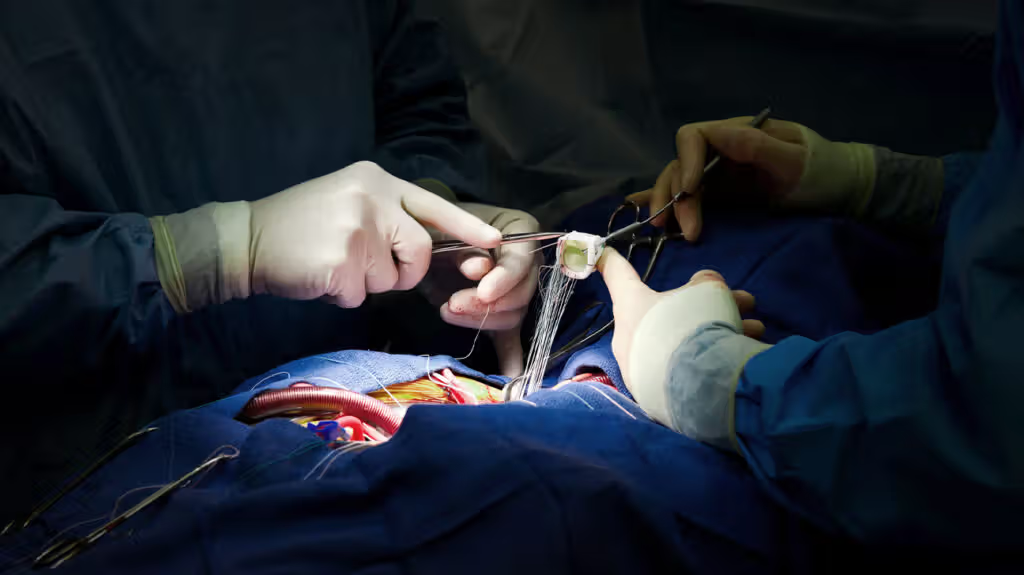
Heart Surgery: Types, Procedures, and Recovery
Heart surgery is a vital medical intervention that helps treat various heart conditions when medications and lifestyle changes are no longer effective. Whether the goal is to restore blood flow, repair damaged valves, or replace a failing heart, understanding heart surgery—its types, procedures, and recovery—is crucial for both patients and caregivers.
What Is Heart Surgery?
To begin with, heart surgery refers to any operation involving the heart or blood vessels surrounding it. It is often used to correct structural abnormalities, repair damage caused by heart disease, or improve overall heart function. Depending on the condition, surgery may be open-heart, minimally invasive, or performed via catheter-based techniques.
Types of Heart Surgery
Several types of heart surgeries are performed today. Each one addresses a specific heart-related issue.
1. Coronary Artery Bypass Grafting (CABG)
First and foremost, CABG is one of the most common heart surgeries. It involves using blood vessels from other parts of the body to bypass blocked coronary arteries. As a result, blood can flow more freely to the heart muscle, reducing the risk of heart attacks.
2. Heart Valve Repair or Replacement
In many cases, valves in the heart become stiff or leaky. Consequently, blood flow is disrupted. Surgery can either repair the existing valve or replace it with a mechanical or biological substitute to restore proper circulation.
3. Arrhythmia Surgery
When medications fail to correct irregular heartbeats, surgery such as the Maze procedure or implantation of a pacemaker may be recommended. These procedures help regulate the heart’s rhythm, thereby reducing the risk of complications.
4. Aneurysm Repair
Occasionally, a part of the heart wall or artery may bulge due to weakness. This bulge, known as an aneurysm, can rupture if not treated. Therefore, surgical intervention is often necessary to repair and reinforce the vessel wall.
5. Heart Transplant
In severe cases of heart failure where other treatments are ineffective, a heart transplant becomes the only viable option. During this procedure, the diseased heart is replaced with a healthy donor heart.
Preparing for Heart Surgery
Proper preparation can make a significant difference in surgical outcomes. Here are the key steps:
- Medical Evaluation: First, your doctor will conduct blood tests, scans, and possibly an ECG to evaluate your condition.
- Medication Adjustments: Some medications may be stopped or adjusted. For example, blood thinners are often paused to prevent excessive bleeding.
- Lifestyle Modifications: Before surgery, patients are encouraged to quit smoking, eat a balanced diet, and engage in light exercise.
- Mental Preparation: Understanding the procedure helps reduce anxiety and builds confidence going into surgery.
What to Expect During Surgery
Typically, heart surgeries are performed in specialized cardiac operating rooms. Depending on the type:
- Open-Heart Surgery involves opening the chest and often using a heart-lung machine to take over the heart’s pumping function.
- Minimally Invasive Surgery, on the other hand, requires only small incisions and uses advanced tools to reduce trauma and speed recovery.
- Catheter-Based Procedures like TAVR or angioplasty use thin tubes inserted through blood vessels to perform repairs without open surgery.
Recovery After Heart Surgery
Recovery can be challenging, but most patients improve significantly with proper care.
- Hospital Stay: Generally, patients stay in the ICU for a day or two, followed by a few days in a regular hospital room.
- Pain Management: Pain and discomfort are common but can be controlled with prescribed medication.
- Physical Rehabilitation: Soon after surgery, physical activity is introduced gradually under medical supervision to build strength and stamina.
- Lifestyle Changes: Importantly, adopting a heart-healthy diet, avoiding tobacco, and managing stress are essential for long-term recovery.
- Follow-Up Appointments: Regular checkups are necessary to monitor progress and manage medications.
Risks and Complications
Although heart surgery is generally safe, it does carry some risks. For instance, complications may include infection, bleeding, blood clots, or adverse reactions to anesthesia. Nevertheless, the benefits often outweigh the risks—especially when surgery is the best or only option.
When Is Heart Surgery Necessary?
Doctors usually recommend surgery when:
- Symptoms persist despite medication and lifestyle changes
- Arteries are significantly blocked
- Valves are not functioning properly
- Congenital defects affect heart performance
- There is a high risk of sudden cardiac arrest due to arrhythmia
In other words, heart surgery becomes necessary when less invasive treatments are no longer effective.
Living Well After Surgery
Life after heart surgery can be fulfilling. With proper rehabilitation and ongoing medical care, many patients return to their normal routines. Additionally, making heart-smart choices significantly lowers the chance of future complications.








